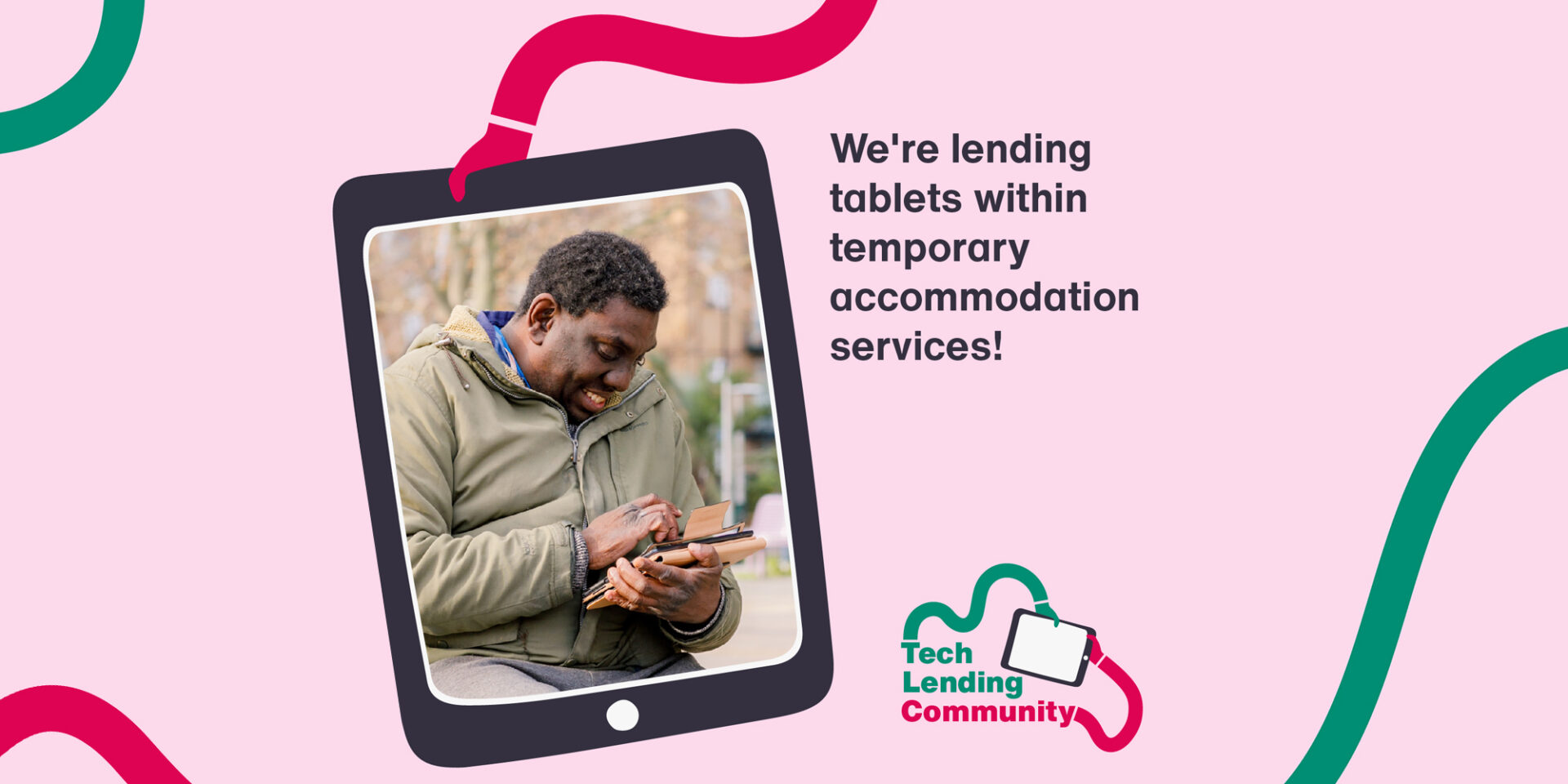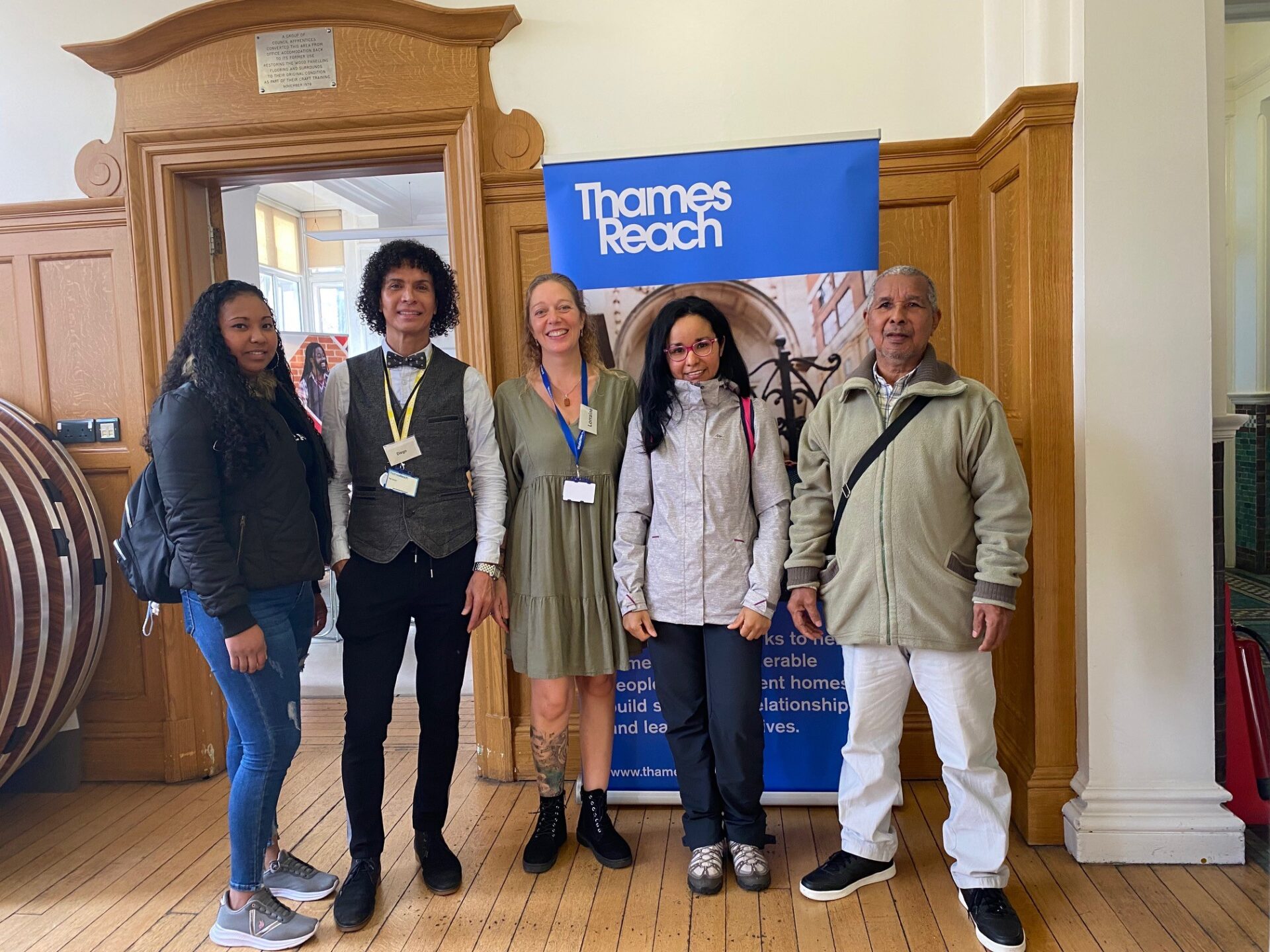Tech Lending Scheme takes steps to close the digital exclusion gap this winter
The Essentials Skills team, in partnership with Hubbub, Virgin Media and O2, are helping people gain digital skills and bridge the digital exclusion gap

A tablet lending scheme, which sees people who are facing digital exclusion given access to a digital device for up to six months, is being trialled at Thames Reach. This has been made possible thanks to funding from Hubbub, in partnership with Virgin Media O2.
Managed by the Essential Skills team, 300 tablets will be lent out to people living in temporary accommodation, while they are receiving support to end their homelessness. Devices come with free calls, texts and data allowing beneficiaries to use them for anything they need, from accessing emails and messenger apps to online materials for education and drug and alcohol programmes.
The scheme has already been rolled out in Thames Reach hostels in Lambeth and will soon be expanded to other forms of short term and emergency accommodation. Feedback from the initial pilot has been highly positive, with hostel staff seeing improvements in self-care and increased independence for residents.
When device recipients were asked how they are getting along (via text), they said:
“I am really pleased with the tablet, it is really useful in my recovery. To have the minutes and texts and data is useful. Thank you for the trust.”
“The tablet is brilliant, it is really helpful. I’m thinking of running, as I was in hospital for 6 months and had to learn to walk again. And the Mind app is great.”
“I’m loving it, I use it 24/7. I’m really grateful for the opportunity to have one.”
Alongside the scheme, all recipients will be able to develop their digital skills through Thames Reach’s in-house digital training programmes delivered by specialist staff.

